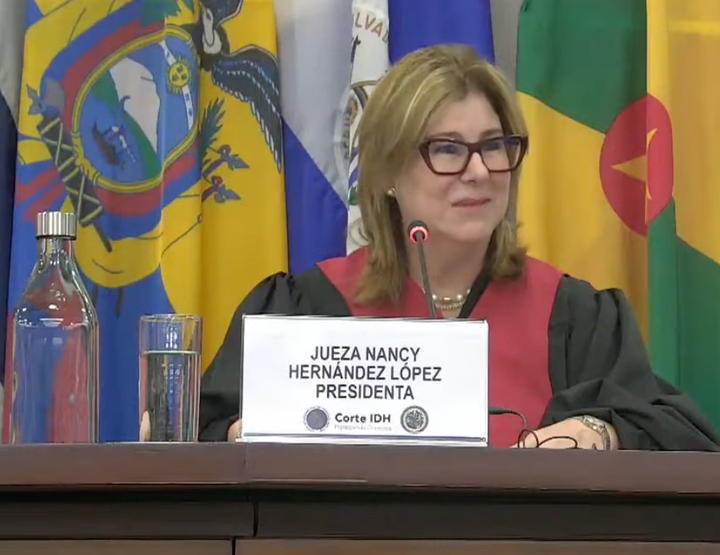Panel Discussion Examines Strategies, Including Human Rights Claims, In European Climate Litigation

Europe has in some ways been at the forefront of climate change litigation, particularly with cases brought against national governments seeking swifter action to reduce greenhouse gas emissions in order to protect citizens’ fundamental rights in the face of the climate emergency. European courts have ruled in favor of climate litigants challenging their governments’ climate policies, first with the groundbreaking verdict in the Dutch Urgenda case and most recently with the Supreme Court victory for Climate Case Ireland.
Lawyers working on European climate litigation, including those who worked on these two trailblazing cases, shared their insights during a virtual panel discussion held Wednesday, September 1. The discussion focused on human rights strategies in European climate cases, and was the fourth in a climate litigation webinar series hosted by the Global Network for Human Rights and the Environment. Panelists included the Urgenda Foundation’s Dennis van Berkel, German lawyer Roda Verheyen, Andrew Jackson of Friends of the Irish Environment, and Louise Fournier with Greenpeace International.

The Urgenda case in the Netherlands won an initial landmark ruling in 2015, which was upheld by the Court of Appeals and the Supreme Court. The courts ordered the Dutch government to reduce greenhouse gas emissions by at least 25 percent (below 1990 levels) by the end of 2020, marking the first time anywhere in the world that courts have ordered a state to increase its level of climate mitigation to protect citizens’ human rights. As van Berkel explained, the Dutch courts upheld the “duty of care” and due diligence principles enshrined in Dutch and international law, essentially concluding that nation states like the Netherlands have an obligation to do their part or fair share in reducing globe-warming emissions to the greatest extent possible. “I think this due diligence principle will play a role in future litigation,” van Berkel said.
The Urgenda case directly inspired an Irish environmental group called Friends of the Irish Environment (FIE) to sue the Irish government over its climate policy in a case dubbed Climate Case Ireland. That case, initially dismissed by the High Court, won in a leapfrog appeal to the Irish Supreme Court with the court ruling in favor of the environmental plaintiffs on July 31, 2020. The Supreme Court decided that Ireland’s 2017 National Mitigation Plan lacked specificity and therefore did not comply with the 2015 statute it arose under. Although the ruling did not address FIE’s human rights arguments, it was still significant in demonstrating that governments’ inadequate climate policies can be challenged – and overturned - in court.
“The overall major message from the case is that governments can and will be held accountable in court for their climate obligations,” FIE attorney Andrew Jackson said.
Panelist Roda Verheyen spoke about her work representing plaintiffs in several European climate cases, including one called the People’s Climate Case challenging the European Union’s 2030 climate target. That case has been stuck on the issue of admissibility (standing) and is currently pending on appeal. Verheyen has also worked on climate cases in Germany - one case is now closed and the other is just beginning. That new case features young people as plaintiffs bringing constitutional claims against the German government challenging the German Climate Change Act enacted in December 2019. Verheyen said this new climate law fails to provide a pathway for emissions reduction aligned with limiting global warming to 1.5°C – a threshold that climate scientists warn exceeding will lead to devastating and possibly irreversible “tipping points” and climate breakdown.
“Given the urgency and fact there is so little time left, our argument is essentially to do as much as you can [to avoid this breakdown],” Verheyen explained.
Louise Fournier, legal counsel for Greenpeace International, wrapped up the discussion talking about climate cases (that Greenpeace is supporting) in Norway, Switzerland, France, the Netherlands, and the Philippines. These cases all have human rights arguments, and as Fournier explained, they demonstrate that human rights law can be used to recognize new legal principles and to hold specific sectors and corporate actors accountable. The Philippines’ case for example, though not an official lawsuit (rather an investigation by the country’s Human Rights Commission), is expected to conclude that major fossil fuel producers could be deemed liable for human rights violations due to their sizeable contributions to the climate crisis. The final report on that investigation is expected in the coming months.
“We hope that the outcome of the Philippines’ inquiry will have implications for the Dutch case against Shell as well as for future rights-based cases against fossil fuel companies,” Fournier said. The case in the Netherlands targeting Shell (Milieudefensie et al. v. Shell) is slated for court hearings later this year.


